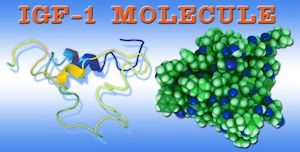Introduction
The intricate relationship between endocrinology and kidney function is a critical area of study, particularly in the context of American males, who face unique health challenges related to these systems. Hormones play a pivotal role in regulating renal health, and disruptions in this balance can lead to a spectrum of diseases. This article delves into the hormonal impact on kidney function, examining how endocrinological factors influence renal health and disease in American males.
The Role of Hormones in Kidney Function
Hormones are essential for maintaining homeostasis within the body, and the kidneys are both regulators and targets of these chemical messengers. In American males, key hormones such as testosterone, aldosterone, and antidiuretic hormone (ADH) directly influence kidney function. Testosterone, for instance, can affect renal blood flow and glomerular filtration rate (GFR), which are crucial for assessing kidney health. Aldosterone, a mineralocorticoid, regulates sodium and potassium balance, impacting blood pressure and fluid volume, which are closely linked to kidney function. ADH, on the other hand, controls water reabsorption in the kidneys, ensuring proper hydration and electrolyte balance.
Hormonal Imbalances and Kidney Disease
Hormonal imbalances can lead to significant renal health issues in American males. For example, hypogonadism, characterized by low testosterone levels, has been associated with an increased risk of chronic kidney disease (CKD). Studies have shown that men with lower testosterone levels tend to have reduced GFR and higher rates of proteinuria, both indicators of kidney dysfunction. Conversely, hyperaldosteronism, often linked to hypertension, can exacerbate kidney damage by promoting fibrosis and inflammation within renal tissues. Understanding these relationships is crucial for developing targeted interventions to mitigate the progression of kidney disease.
Endocrine Disorders and Their Impact on Kidney Health
Several endocrine disorders prevalent among American males can directly impact kidney function. Diabetes mellitus, a condition characterized by elevated blood glucose levels, is a leading cause of CKD. The high glucose levels can damage the glomeruli, leading to diabetic nephropathy. Additionally, thyroid disorders such as hypothyroidism and hyperthyroidism can influence renal function. Hypothyroidism may lead to reduced GFR and increased risk of kidney failure, while hyperthyroidism can cause polyuria and electrolyte imbalances, further stressing the kidneys.
Hormonal Therapies and Renal Health
The use of hormonal therapies in treating various conditions can also have implications for kidney health in American males. For instance, testosterone replacement therapy (TRT) is increasingly used to address hypogonadism. While TRT can improve symptoms associated with low testosterone, its impact on kidney function remains a topic of debate. Some studies suggest that TRT may improve renal function by enhancing GFR, while others indicate potential risks, such as increased fluid retention and blood pressure, which could exacerbate kidney disease. Similarly, medications used to manage hypertension and fluid balance, such as angiotensin-converting enzyme (ACE) inhibitors and aldosterone antagonists, can influence hormonal pathways and renal health.
Preventive Measures and Management Strategies
Preventing and managing kidney disease in American males requires a multifaceted approach that considers the interplay between endocrinology and renal function. Regular monitoring of hormone levels and kidney function markers, such as serum creatinine and GFR, is essential for early detection and intervention. Lifestyle modifications, including a balanced diet, regular exercise, and adequate hydration, can help maintain hormonal balance and support kidney health. For those with diagnosed endocrine disorders, tailored treatment plans that consider the potential renal impact are crucial. Collaboration between endocrinologists and nephrologists can ensure comprehensive care and optimal management of these interconnected health issues.
Conclusion
The relationship between endocrinology and kidney function in American males is complex and multifaceted, with hormonal imbalances playing a significant role in renal health and disease. Understanding these dynamics is essential for developing effective preventive and management strategies. By addressing hormonal factors and their impact on the kidneys, healthcare providers can improve outcomes for American males at risk of or living with kidney disease.
Contact Us For A Fast And Professional Response

- Endocrinology and Sleep Disorders: Impact and Management in American Men [Last Updated On: February 20th, 2025] [Originally Added On: February 20th, 2025]
- Vitamin D's Crucial Role in Endocrine Health for American Males [Last Updated On: March 17th, 2025] [Originally Added On: March 17th, 2025]
- Lifestyle Impact on Endocrine Health in American Men: Diet, Exercise, Sleep, Stress [Last Updated On: March 18th, 2025] [Originally Added On: March 18th, 2025]
- Endocrine Health and Cancer Risk in American Men: A Comprehensive Analysis [Last Updated On: March 19th, 2025] [Originally Added On: March 19th, 2025]
- Managing PCOS in Transgender American Men: Endocrinological and Tailored Care Approaches [Last Updated On: March 19th, 2025] [Originally Added On: March 19th, 2025]
- Autoimmune Endocrine Disorders in American Males: Diagnosis, Treatment, and Management [Last Updated On: March 19th, 2025] [Originally Added On: March 19th, 2025]
- Hormonal Changes in Aging Men: Impacts and Management Strategies [Last Updated On: March 19th, 2025] [Originally Added On: March 19th, 2025]
- Hormonal Optimization for American Male Athletes: Enhancing Performance Naturally [Last Updated On: March 20th, 2025] [Originally Added On: March 20th, 2025]
- Endocrine Disruptors: Impact on American Male Health and Mitigation Strategies [Last Updated On: March 20th, 2025] [Originally Added On: March 20th, 2025]
- Endocrinology's Role in Weight Management for American Males: Hormones and Strategies [Last Updated On: March 21st, 2025] [Originally Added On: March 21st, 2025]
- Managing Type 2 Diabetes in American Men: An Endocrinological Approach [Last Updated On: March 21st, 2025] [Originally Added On: March 21st, 2025]
- Male Sexual Health and Endocrinology: Hormones, Disorders, and Treatment Insights [Last Updated On: March 22nd, 2025] [Originally Added On: March 22nd, 2025]
- Chronic Fatigue in American Males: Endocrinology's Role in Diagnosis and Management [Last Updated On: March 22nd, 2025] [Originally Added On: March 22nd, 2025]
- Dietary Impact on Endocrine Health in American Men: Hormones and Nutrition Strategies [Last Updated On: March 22nd, 2025] [Originally Added On: March 22nd, 2025]
- Smoking's Impact on Male Endocrine Health: Testosterone, Thyroid, and More [Last Updated On: March 23rd, 2025] [Originally Added On: March 23rd, 2025]
- Male Depression and Endocrinology: Hormonal Insights and Management Strategies [Last Updated On: March 23rd, 2025] [Originally Added On: March 23rd, 2025]
- Endocrine Health and Mental Well-being in American Males: Hormonal Balance and Lifestyle Impact [Last Updated On: March 23rd, 2025] [Originally Added On: March 23rd, 2025]
- Hormones and Joint Health in American Men: Impacts, Interventions, and Prevention [Last Updated On: March 23rd, 2025] [Originally Added On: March 23rd, 2025]
- Hormonal Influences on Dental Health in American Men: Strategies for Optimal Oral Care [Last Updated On: March 24th, 2025] [Originally Added On: March 24th, 2025]
- Managing Endocrine Disorders in American Men with Neurological Conditions: A Tailored Approach [Last Updated On: March 24th, 2025] [Originally Added On: March 24th, 2025]
- Alcohol's Impact on Endocrine Health in American Males: A Comprehensive Overview [Last Updated On: March 24th, 2025] [Originally Added On: March 24th, 2025]
- Endocrinology's Role in Male Infertility: Diagnosis, Treatment, and Lifestyle Impact [Last Updated On: March 24th, 2025] [Originally Added On: March 24th, 2025]
- Endocrine Health and Liver Function: Impacts on American Male Health [Last Updated On: March 24th, 2025] [Originally Added On: March 24th, 2025]
- Hormonal Influences on Immune Health in American Men: Testosterone, Cortisol, and More [Last Updated On: March 24th, 2025] [Originally Added On: March 24th, 2025]
- Hormones and Skin Health: A Guide for American Men [Last Updated On: March 24th, 2025] [Originally Added On: March 24th, 2025]
- Endocrinology's Impact on Muscle Health in American Males: Hormones and Optimization Strategies [Last Updated On: March 24th, 2025] [Originally Added On: March 24th, 2025]
- Endocrine System's Role in Digestive Health of American Males: Hormones and Disorders [Last Updated On: March 25th, 2025] [Originally Added On: March 25th, 2025]
- Endocrine Health and Hearing Loss in American Males: Insights and Prevention [Last Updated On: March 25th, 2025] [Originally Added On: March 25th, 2025]
- Sleep's Impact on Endocrine Health in American Males: Hormones and Well-being [Last Updated On: March 25th, 2025] [Originally Added On: March 25th, 2025]
- Endocrine Disorders and Heart Disease: Management Strategies for American Men [Last Updated On: March 25th, 2025] [Originally Added On: March 25th, 2025]
- Nutrition's Impact on Endocrine Health in American Males: Dietary Choices and Hormone Balance [Last Updated On: March 25th, 2025] [Originally Added On: March 25th, 2025]
- Gout in American Males: Endocrinological Insights and Management Strategies [Last Updated On: March 26th, 2025] [Originally Added On: March 26th, 2025]
- Exercise Benefits on Endocrine Health in American Males: Hormonal Impacts Explored [Last Updated On: March 26th, 2025] [Originally Added On: March 26th, 2025]
- Endocrinology's Impact on Kidney Health: A Guide for American Men [Last Updated On: March 26th, 2025] [Originally Added On: March 26th, 2025]
- Endocrinology's Role in Treating Male Eating Disorders in the USA [Last Updated On: March 26th, 2025] [Originally Added On: March 26th, 2025]
- Endocrine Disorders and Autoimmune Diseases in American Men: Management and Impact [Last Updated On: March 26th, 2025] [Originally Added On: March 26th, 2025]
- Endocrine Health's Role in Prostate Cancer Among American Men: A Comprehensive Overview [Last Updated On: March 26th, 2025] [Originally Added On: March 26th, 2025]
- Chronic Stress Impact on Endocrine Health in American Males: Hormonal Pathways and Management [Last Updated On: March 26th, 2025] [Originally Added On: March 26th, 2025]
- Endocrine Health and Vision: Critical Insights for American Males [Last Updated On: March 26th, 2025] [Originally Added On: March 26th, 2025]
- Hormonal Imbalances and Foot Health in American Men: Impacts and Management Strategies [Last Updated On: March 27th, 2025] [Originally Added On: March 27th, 2025]
- Endocrinology's Role in Managing Male Insomnia in the USA [Last Updated On: March 27th, 2025] [Originally Added On: March 27th, 2025]
- Endocrine-Gastrointestinal Interplay: Management Strategies for American Men [Last Updated On: March 27th, 2025] [Originally Added On: March 27th, 2025]
- Exploring Endocrinology's Role in Treating Male Anxiety in the USA [Last Updated On: March 28th, 2025] [Originally Added On: March 28th, 2025]
- Endocrine Disorders and Skin Health in American Men: Diagnosis, Treatment, and Management [Last Updated On: March 28th, 2025] [Originally Added On: March 28th, 2025]
- Endocrine Health's Impact on Respiratory Function in American Males [Last Updated On: March 28th, 2025] [Originally Added On: March 28th, 2025]
- Endocrine Health and Nail Conditions in American Males: A Diagnostic Insight [Last Updated On: March 28th, 2025] [Originally Added On: March 28th, 2025]
- Exploring Endocrinology's Role in Managing ADHD in American Males [Last Updated On: March 28th, 2025] [Originally Added On: March 28th, 2025]
- Caffeine's Impact on Endocrine Function in American Males: Risks and Recommendations [Last Updated On: March 28th, 2025] [Originally Added On: March 28th, 2025]
- Hormonal Hair Loss in American Men: Causes, Treatments, and Future Research [Last Updated On: March 29th, 2025] [Originally Added On: March 29th, 2025]
- Endocrine Disorders in Men: Impact on Eye Health and Management Strategies [Last Updated On: March 30th, 2025] [Originally Added On: March 30th, 2025]
- Endocrinology's Role in Enhancing Bipolar Disorder Treatment for American Men [Last Updated On: March 30th, 2025] [Originally Added On: March 30th, 2025]
- Endocrinology's Role in Treating PTSD Among American Males: Hormonal Insights and Interventions [Last Updated On: March 30th, 2025] [Originally Added On: March 30th, 2025]
- Endocrine Disorders and Hand Health in American Males: Impacts and Management Strategies [Last Updated On: April 1st, 2025] [Originally Added On: April 1st, 2025]
- Hormonal Influences on Nasal Health in American Men: A Comprehensive Overview [Last Updated On: April 2nd, 2025] [Originally Added On: April 2nd, 2025]
- Endocrine Disorders and Ear Health: Impacts and Management for American Men [Last Updated On: April 5th, 2025] [Originally Added On: April 5th, 2025]
- Hydration's Impact on Endocrine Health in American Males: A Comprehensive Guide [Last Updated On: April 5th, 2025] [Originally Added On: April 5th, 2025]
- Exploring Endocrinology's Role in Treating Schizophrenia in Male Patients [Last Updated On: April 6th, 2025] [Originally Added On: April 6th, 2025]
- Endocrine System's Impact on Throat Health in American Males: Hormonal Insights [Last Updated On: April 6th, 2025] [Originally Added On: April 6th, 2025]
- Dietary Supplements' Impact on Endocrine Health in American Males: A Comprehensive Analysis [Last Updated On: April 7th, 2025] [Originally Added On: April 7th, 2025]
- Managing Endocrine Disorders in American Men with Lung Conditions: A Multidisciplinary Approach [Last Updated On: April 8th, 2025] [Originally Added On: April 8th, 2025]
- Hormonal Influences on Heart Health in American Men: Testosterone, Thyroid, Insulin [Last Updated On: April 8th, 2025] [Originally Added On: April 8th, 2025]
- Mental Health's Impact on Endocrine Function in American Males: A Comprehensive Analysis [Last Updated On: April 8th, 2025] [Originally Added On: April 8th, 2025]
- Managing Endocrine Disorders in American Men with Kidney Disease: A Multidisciplinary Approach [Last Updated On: April 9th, 2025] [Originally Added On: April 9th, 2025]
- Endocrine Health's Impact on Blood Health in American Males: A Comprehensive Overview [Last Updated On: April 10th, 2025] [Originally Added On: April 10th, 2025]
- Exploring Endocrinology's Role in Treating Male Autism in the USA [Last Updated On: April 10th, 2025] [Originally Added On: April 10th, 2025]
- Hormonal Influences on Male Brain Health: Testosterone, Cortisol, and More [Last Updated On: April 10th, 2025] [Originally Added On: April 10th, 2025]
- Exploring Endocrinology's Role in Treating OCD Among American Males [Last Updated On: April 13th, 2025] [Originally Added On: April 13th, 2025]
- Endocrine-Nerve Health in American Males: Hormones, Disorders, and Holistic Care [Last Updated On: April 14th, 2025] [Originally Added On: April 14th, 2025]
- Aging Effects on Endocrine Function in American Males: Hormonal Changes and Management [Last Updated On: April 14th, 2025] [Originally Added On: April 14th, 2025]
- Lifestyle Choices Impacting Endocrine Health in American Males: Diet, Exercise, Sleep, Stress [Last Updated On: April 16th, 2025] [Originally Added On: April 16th, 2025]
- Exploring Hormonal Links in Male ADD: An Endocrinological Perspective [Last Updated On: April 16th, 2025] [Originally Added On: April 16th, 2025]
- Endocrine Disorders and Muscle Health in American Men: Challenges and Management Strategies [Last Updated On: April 16th, 2025] [Originally Added On: April 16th, 2025]
- Hormonal Fluctuations and Their Impact on Men's Skin Health in America [Last Updated On: April 17th, 2025] [Originally Added On: April 17th, 2025]
- Endocrine Health's Impact on Joint Function in American Males: A Comprehensive Guide [Last Updated On: April 18th, 2025] [Originally Added On: April 18th, 2025]
- Managing Endocrine Disorders in American Men with Heart Conditions: A Holistic Approach [Last Updated On: April 18th, 2025] [Originally Added On: April 18th, 2025]
- Endocrine System and Liver Function: Vital Health Link in American Males [Last Updated On: April 18th, 2025] [Originally Added On: April 18th, 2025]
- Bone Health in American Men: Hormonal Influences and Holistic Management Strategies [Last Updated On: April 19th, 2025] [Originally Added On: April 19th, 2025]
- Endocrinology's Vital Role in Treating Male Eating Disorders in the U.S. [Last Updated On: April 19th, 2025] [Originally Added On: April 19th, 2025]
- Endocrinology's Role in Managing Diabetes Among American Males: A Comprehensive Approach [Last Updated On: April 21st, 2025] [Originally Added On: April 21st, 2025]
- Endocrinology's Impact on American Male Health: Hormones and Wellness [Last Updated On: April 22nd, 2025] [Originally Added On: April 22nd, 2025]
















